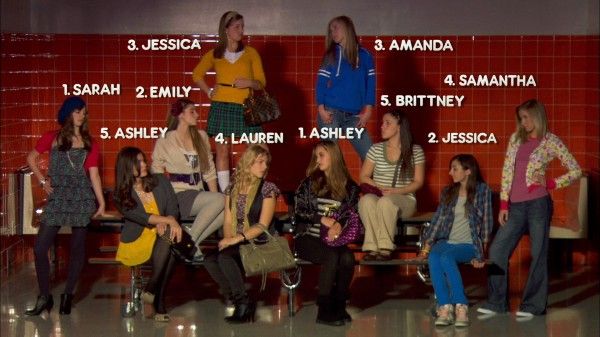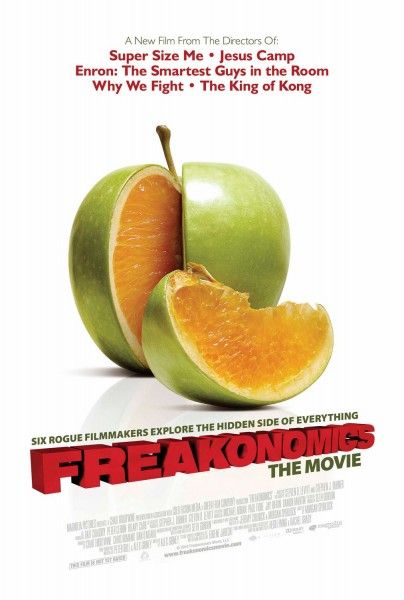Cheating sumo wrestlers, the value of a name, bribing students to do better in school, and legalized abortion leading to a lower crime rate are all topics in the documentary anthology Freakonomics. Based on the best-selling book by economist Steven Levitt and journalist Stephen Dubner, Freakonomics takes the book's individual chapters and hands them off to noted documentary filmmakers Seth Gordon (The King of Kong: A Fistful of Quarters), Morgan Spurlock (Super Size Me), Alex Gibney (Taxi to the Dark Side), Eugene Jarecki (Why We Fight), and Heidi Ewing and Rachel Grady (Jesus Camp). While Freakonomics has the makings of an excellent weekly TV show, there's nothing that holds it together as a complete motion picture beyond the source material and an interesting approach to a particular topic.
Freakonomics is about how "rogue economist" Levitt "explores the hidden side of everything". That translates into applying an economist's perspective to certain touchy subjects such as cheating, crime, or racial divides. The film tries to put forward a thesis statement about the importance of incentives but it doesn't look like all the filmmakers got the memo. While the value of incentives is seen in why sumo wrestlers cheat (Gibney's segment) and why high school students are willing to get higher grades in exchange for cash prizes (Ewing and Grady's segment), it's difficult to see how incentives are a factor in why black names are different from white names (Spurlock's segment) or why the legalization of abortion reduced the crime rate in the 1990s (Jarecki's segment). Perhaps better chapters to take from the book would've been "Why Do Drug Dealers Still Live with Their Moms?" and "What Makes a Perfect Parent?"
But taken individually, each segment is highly entertaining. Freakonomics is an easy and fascinating read, and if you want to see parts of the book effectively visualized, then the movie has got you covered. Gibney's segment on sumo wrestling is particularly well done and feels like it could be expanded into its own movie. Unfortunately, with six different documentarians, you have six distinct voices and the tone of the overall film feels scattered as a result. For example, Gordon's introductory and transitional segments feel lighthearted and fun while Gibney and Jarecki's segments are dark and gritty.
Freakonomics adds up to less than the sum of its parts. Each segment, taken on its own, is entertaining, informative, and captivating. But when put together, it's hard to know why these chapters were chosen for adaptation for any reason beyond the filmmaker's preference. Ultimately, I was left wondering if perhaps it would have been better if Levitt and Dubner had teamed with a single documentary filmmaker to pursue an entirely new case file. I would have settled for a well-documented hidden side of one thing than a scattershot exploration of the hidden side of everything.
Rating: C+



